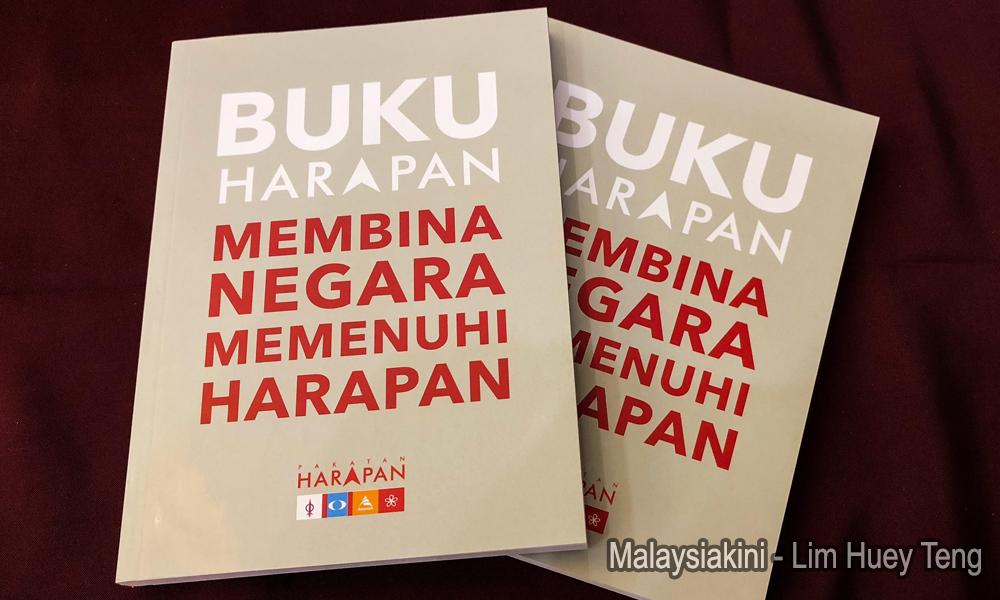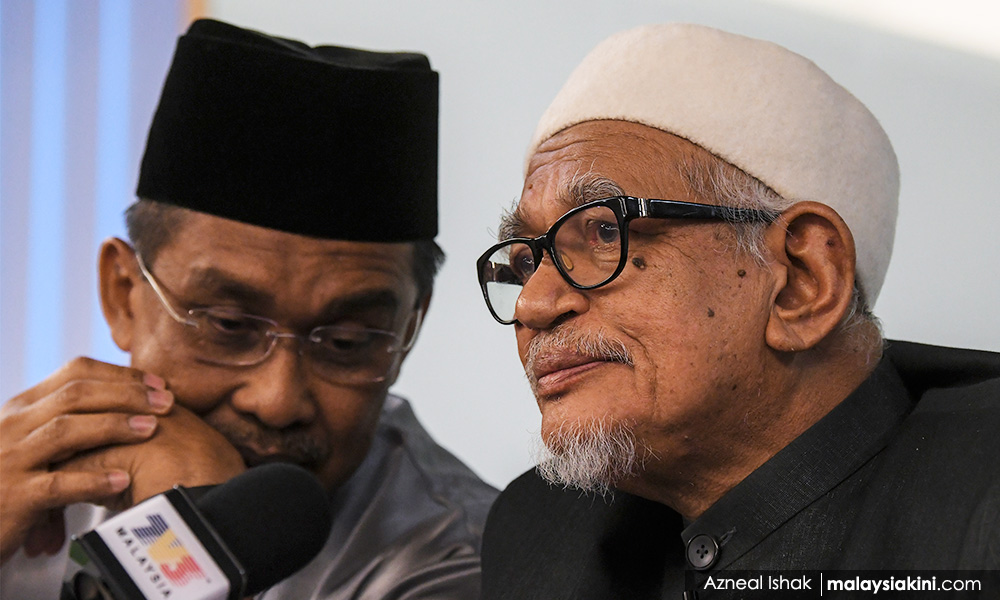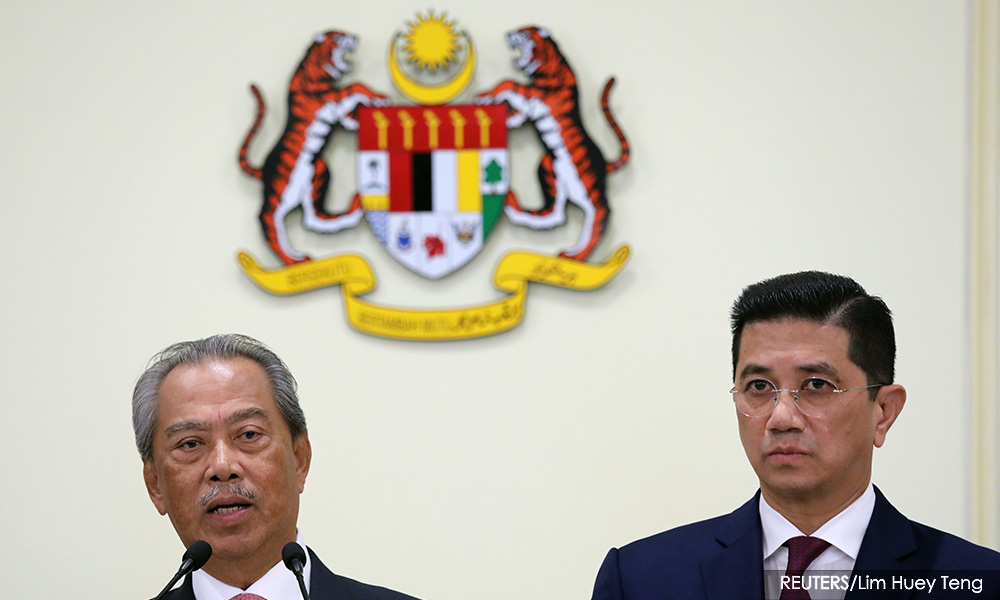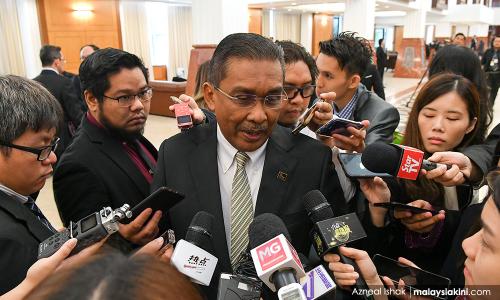COMMENT | A rebuttal to Takiyuddin’s ‘MPs qualified to head GLCs’
COMMENT | Takiyuddin Hassan, minister in the Prime Minister’s Department and PAS secretary-general, triggered a political storm recently with a contentious statement.
Takiyuddin noted that since nine of PAS’ 18 MPs had not secured an appointment with a ministerial status, they would “be given the responsibility to manage GLCs (government-linked companies)… because all of them are qualified. They are MPs”.
What was most shocking was that the audacity of this statement was lost on Takiyuddin. In the midst of an unprecedented global health crisis, one that will inevitably precipitate a serious economic downturn, Takiyuddin, as well as other parliamentarians, saw no problem with the much-critiqued practice of appointing politicians as directors of government-controlled business-based institutions that play a key role in the economy.
Swift backlash
The backlash to Takiyuddin’s statement was swift and widespread. Civil society members, ex-bureaucrats and former government leaders issued stinging ripostes, admonishing Takiyuddin for revelling in what he saw as just reward for his PAS colleagues who had been elected to parliament. One response that merits deep consideration is that by Anwar Ibrahim, former deputy prime minister and finance minister.
Anwar, now in the opposition wing of parliament, saw these appointments of parliamentarians as GLC heads as a “crime”. Anwar adopted this stance because he could not fathom how the government could defend making “it a rule that every single MP will be given additional positions, perks and offices when people are struggling to eat”. As far as Anwar was concerned, such appointments smacked of “protecting the interests of MPs and your cronies”.

Anwar had, however, to concede that this habit of appointing elected representatives to lead GLCs was one that his coalition, Pakatan Harapan, had similarly practised when in power. Anwar justified the GLC appointments of his allies on the grounds that they were qualified as they had “impressive academic and professional credentials”. Anwar, however, tempered his statement by adding that “although we can be questioned about some of these decisions, certainly the excesses that the government proposes now are unprecedented and indefensible.”
These statements by Takiyuddin and Anwar indicate an important issue. The appointment of politicians as GLC directors is a longstanding convention, one that all political parties indulge in when they secure power. Interestingly, top leaders of DAP and Amanah have not commented on Takiyuddin’s statement.
State-level GLCs
Takiyuddin’s statement drew attention to another point that has not been considered yet in this ongoing debate about GLC directors: all 13 state governments in Malaysia also own such enterprises. Many of them have been similarly subjected to poor governance under the leadership of politicians.
The mode of governance of GLCs at the state-level must also be reviewed because, after the 14th General Election (GE14) in May 2018, eight different political parties secured control of these 13 state governments. There was thus little desire by any party leader to announce reform of GLCs which have long served as a crucial tool to garner political support.
This was the case even though a whole slew of scandals had emerged involving GLCs before the GE14. These scandals involved major enterprises such as 1MDB, Tabung Haji and Mara. These scandals had contributed to lengthy debates about the manner of appointment of GLC directors.
The chairpersons of the boards of directors of these three enterprises were Umno politicians. Some of these GLCs, in particular, 1MDB, were managed by professionals who had no political links. It was due to the global corporate manoeuvrings of 1MDB’s highly-qualified and well-compensated professionals that Malaysia came to be classified as a kleptocracy.

Not unexpectedly, Harapan, in its GE14 manifesto, went so far as to state that the “governance structure” of GLCs would be reviewed to ensure “effective check and balance”. Another key issue was mentioned in the manifesto: “Even more embarrassing is the fact that we don’t even know how many GLCs exist in the country. Yet many of their cronies continue to reap the allowances from holding posts in the GLCs”.
Two crucial points were made here. Before reforms could be discussed, a detailed assessment had to be done to determine the number of GLCs in the country and of the reasons why they had been established. And, GLCs were a crucial source of political financing.
These GLCs, which include a sovereign wealth fund, investment funds, statutory bodies, holding companies and foundations, have different functions. There is a need to distinguish between those that have to be retained because of their important social and economic functions, like supporting Malaysia’s most vulnerable, including in rural Kelantan, and those that function merely as mechanisms through which the politics of patronage and rent distribution can be practised. In both cases, however, corruption was rife.
No political will
After the epochal GE14, there was no political will on the part of Harapan leaders to take decisive action to institute reforms. All Harapan coalition parties now had control of GLCs, with their members serving as chief ministers of state governments. In spite of their pledges in the manifesto, these politicians were aware that GLC directorships were an important avenue to reward their supporters as well as a mechanism for raising funds to finance their political activities.
Moreover, since there were so many of these GLCs, a huge number of them were operating beyond the watch of oversight institutions. It is quite likely that institutions such as the Malaysian Anti-Corruption Commission (MACC) and the Election Commission (EC) had little or no idea of this opaque GLC world, how these companies functioned in the economy and how they served as an avenue for political financing.
When assessments of these state-level GLCs were done, there was evidence of misallocation of resources in numerous cases, similar to those found among federal-level enterprises. Other key features of these state-level GLCs included weak levels of investments and abuse of business opportunities channelled to them, both key factors that had contributed to low productivity growth.
However, different state governments handled GLCs in different ways. Some state governments, in fact, managed to create dynamic enterprises. KPJ Healthcare, a major publicly-listed enterprise, was nurtured by a state-level holding company, Johor Corporation, led by public servants. The governments of Penang, Selangor, Perak, Kedah, Pahang, Terengganu and Sabah have control of publicly-listed GLCs, though most of them cannot be considered as leading enterprises.

On the other hand, in Kelantan, Takiyuddin’s home state that has been under PAS rule for 30 years, there is no GLC of any significance, though it has a vast number of such enterprises. What is even more troubling, as one study by think tank IDEAS indicated, was that a colossal number of PAS members, including Takiyuddin, held directorships in these GLCs.
Takiyuddin’s statement merely reflected what had long been occurring in Kelantan. GLCs have been little more than parts of the party machine, with these politicians having little interest in ensuring that these enterprises emerge as key players in this poor state’s economy. The prospect then of PAS leaders taking charge of national-level GLCs, when Malaysia is confronted with a looming economic crisis, is extremely alarming.
Muhyiddin’s dilemma
What can be learnt from history is that political leaders are well aware of the heavy hand of the government in the economy and, as such, the enormous responsibilities that come with the appointment to lead a GLC. However, there has been an appalling level of irresponsibility by government leaders in appointing politicians who do not qualify as GLC directors.
When professionals were appointed, many served as mere servants of their political masters, not in the national interest. The way politicians have handled GLCs is a key reason why these enterprises hardly foster a sense of trust and credibility among Malaysians. This GLC system evidently requires immediate and major restructurings at federal and state levels.
As for the top leaders of the Perikatan Nasional (PN) government, they were privy to the authorship of the Harapan manifesto. These leaders, specifically Prime Minister Muhyiddin and Senior Minister Azmin Ali, were foremost critics of the abuse of GLCs by the Najib Razak administration.

They should be well aware why reform of the GLCs is pertinent. In fact, Muhyiddin told Malaysians in his first national address that he would “increase administrative integrity and management” as well as “fight corruption and abuse of power”. The appointment of parliamentarians as GLC directors serves to undermine these pledges.
Why then are these PAS MPs being so rewarded? Muhyiddin’s grand strategy is one that entails employing GLC appointments to consolidate his position in parliament before it convenes next month. There is nothing meritorious in these GLC appointments, even if Takiyuddin insists otherwise.
Muhyiddin’s problem is that there is now greater awareness of the important role GLCs can play to support Malaysia’s ailing economy, at a point when private sector firms are in little position to do so. After all, Muhyiddin himself repeatedly stressed this when presenting his stimulus packages.
In spite of considerable protests to Takiyuddin’s statement, Muhyiddin has not spoken about this controversy. Muhyiddin’s dilemma is that he is under enormous pressure to deliver a sound economic response to the Covid-19 pandemic, while having to practice patronage to keep himself in power. A fine balance, indeed, if Muhyiddin can find it. It is unlikely he will.
TERENCE GOMEZ is professor of political economy at the Universiti Malaya.
The views expressed here are those of the author/contributor and do not necessarily represent the views of Malaysiakini.
RM12.50 / month
- Unlimited access to award-winning journalism
- Comment and share your opinions on all our articles
- Gift interesting stories to your friends
- Tax deductable
